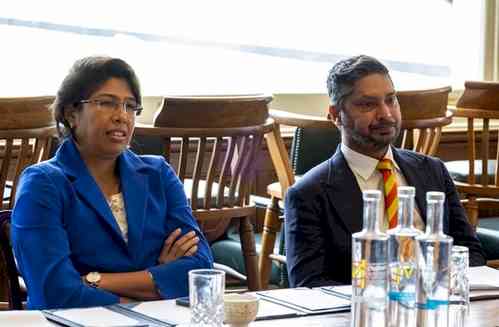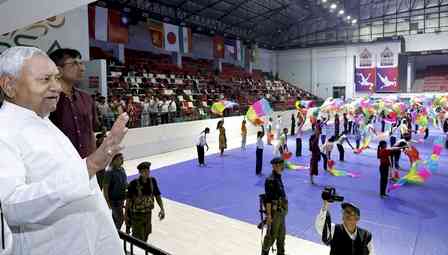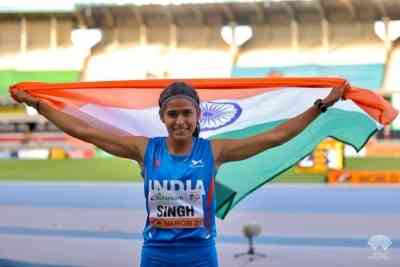MCC World Cricket Committee proposes strategic funds to develop Test cricket, women's game
Claiming that "it is time for the global game to reset", the MCC World Cricket Committee (WCC) has proposed for the International Cricket Council (ICC) to establish two strategic funds -- one to sustain the Test cricket programme across the world and other for the development of the women's game.

London, July 11 (IANS) Claiming that "it is time for the global game to reset", the MCC World Cricket Committee (WCC) has proposed for the International Cricket Council (ICC) to establish two strategic funds -- one to sustain the Test cricket programme across the world and other for the development of the women's game.
To help identify nations in need of support to sustain Test cricket, the WCC has asked ICC to undertake a Test match financial audit to analyze the difference between operational costs and commercial.
This need could be subsequently addressed via a separate Test fund, established to protect the sanctity of Test match cricket, the WCC recommended following the first meeting of 2023 in Dubai, in which it concluded that the game was at a crossroads with intervention required.
The committee has now released specific recommendations for the ICC to help ensure the long-term prosperity of the men’s and women’s international games.
"Ahead of the next iteration of the ICC men’s Future Tours Programme (FTP) in 2028, it calls on the ICC to ensure the men’s FTP beyond 2027 has an equitable schedule of matches for all full member countries, rewarding hosts and touring nations alike," the MCC informed in a release on Tuesday.
The goal must be to secure a balanced, meaningful, and commercially viable FTP for all, which prioritises bilateral cricket, finds suitable space for franchise cricket and, in particular, supports the full potential of the ICC World Test Championship to be recognised.
The committee discussed how to protect, grow and strengthen women’s cricket globally. It believes that the optimum solution to support this objective would be to create a substantial and ringfenced ICC Strategic Fund that can be allocated on a required basis to full member and associate nations who, amongst other key initiatives, fully commit to their women’s pathway and national team, the release said.
The WCC also believes that to qualify as a full ICC member, each nation must be required to commit to investing in both men’s and women's cricket and field a national women's team.
The committee, led by England's Mike Gatting and comprising, Suzie Bates, Clare Connor, Kumar Dharmasena, Sourav Ganguly, Jhulan Goswami, Heather Knight, Justin Langer, Eoin Morgan, Ramiz Raja, Kumar Sangakkara, Graeme Smith and Ricky Skerritt, questioned the role men’s One-Day International (ODI) cricket now plays outside of ICC World Cups, and recommended it be significantly reduced following the completion of the 2027 ICC Men’s World Cup.
"The suggestion is that a scarcity of ODI cricket would increase the quality, achieved by removing bilateral ODIs, other than in the one-year preceding each World Cup. This would, as a consequence, also create much-needed space in the global cricketing calendar," the release said.
The committee, in its meeting, also expressed concerns with the pace of play in men's Test matches being played around the world.
"Despite a thrilling World Test Championship Final, a substantial number of overs were lost throughout the duration of the Test, and in the first Test of the men’s Ashes series, with both teams fined and penalised World Test Championship points after failing to comply with over-rate targets. The WCC has previously raised these concerns with ICC, along with suggestions for intervention but has yet to see any change implemented," the WCC said in the release.
Following the conclusion of the World Cricket Committee and the release of the game-wide actions, outgoing Chair, Mike Gatting, said: “In many ways, cricket is growing and, on the surface, seems financially strong. However, we are increasingly seeing a game which focuses on a powerful few, as opposed to a democratic and inclusive approach for the benefit of the whole sport.
“It’s time for the global game to reset. Too often, member nations are finding themselves living hand to mouth with their cricketing operations, versus having a long-term, viable strategy in place that future-proofs the game in their country, both financially and in terms of participation," he said.


 IANS
IANS 










